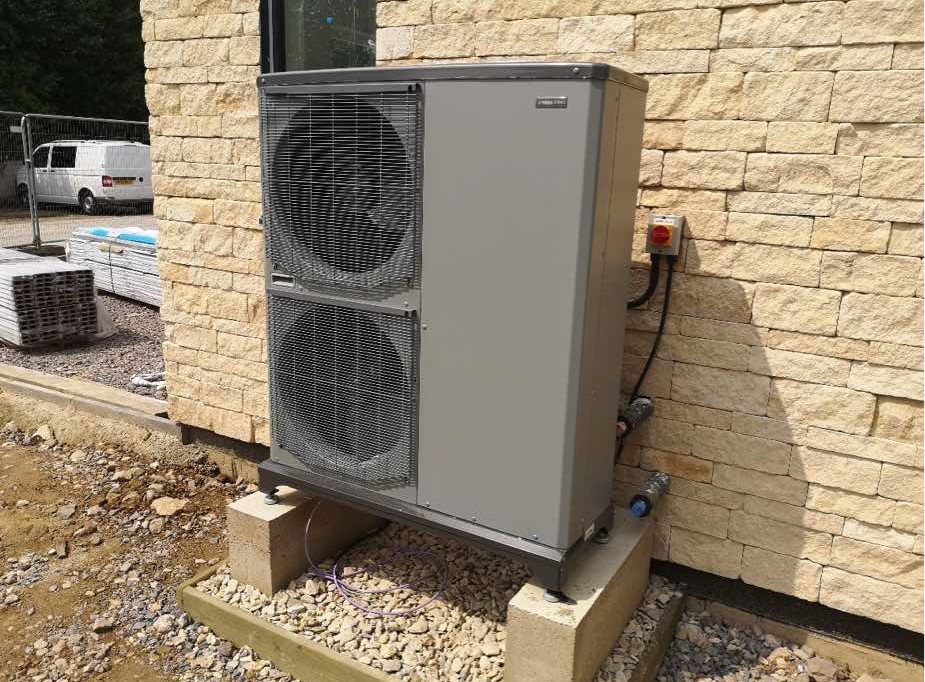As more people consider heat pumps for their homes, a common question arises: How noisy are they? To understand this, it’s important to first grasp the difference between sound power and sound pressure, explore the typical noise levels of air-to-water heat pumps, and compare them to everyday sounds for context.
Sound power vs. sound pressure: What’s the difference?
- Sound Power Level (Lw): This is a measure of the total acoustic energy a heat pump generates. It’s measured at the source and remains constant regardless of distance. Think of it as the “wattage” of the noise.
- Sound Pressure Level (Lp): This is what you actually hear at a specific distance from the source. It decreases with distance and is affected by the environment, such as walls or trees that absorb sound.
To illustrate: imagine a concert. The sound power is how much energy the speakers produce, while the sound pressure is how loud it feels depending on where you’re sitting.
How noisy are air-to-water heat pumps?
The noise level of air-to-water heat pumps typically ranges from 42 to 60 decibels (dB), depending on the model and operating conditions. Manufacturers often specify the sound power level for regulatory compliance, but the perceived noise (sound pressure) at your home will depend on placement and distance.
For context, here’s how heat pump noise compares to familiar sounds:
- 35 dB – Similar to a quiet library or a whisper.
- 40-50 dB – Comparable to a typical refrigerator hum or a quiet conversation.
- 60 dB – Roughly the level of normal conversation or background office noise.
Placement matters
The sound pressure level drops by approximately 6 dB each time the distance doubles from the source. For example, if a heat pump generates 50 dB at 1 meter, it will be about 44 dB at 2 meters and 38 dB at 4 meters. Proper placement, such as avoiding locations near bedroom windows, can make the sound less noticeable.
Comparison to other outdoor equipment
To put this into perspective, here’s how heat pumps stack up against other outdoor devices:
- Modern heat pumps: 35–60 dB
- Typical air conditioners: 55–70 dB
- Dishwasher (indoors): 50–60 dB
- Traffic noise at 10m: 70 dB
Reducing heat pump noise
Modern heat pumps are designed with noise reduction in mind, incorporating features like insulated casings, quieter fans, and advanced compressors. To further minimize noise:
- Choose a quieter model: Look for units with a low sound power level.
- Optimal placement: Install the unit on a stable surface, away from reflective walls that can amplify sound.
- Use sound barriers: Landscaping or noise-reducing panels can help absorb or deflect sound.
So, how noisy are heat pumps?
While heat pumps produce some noise, advances in technology have made them quieter than ever. By understanding the difference between sound power and pressure and comparing heat pump noise to everyday sounds, homeowners can make informed decisions. Proper placement and thoughtful installation can further ensure that your heat pump runs efficiently and quietly, blending seamlessly into your home’s environment.











